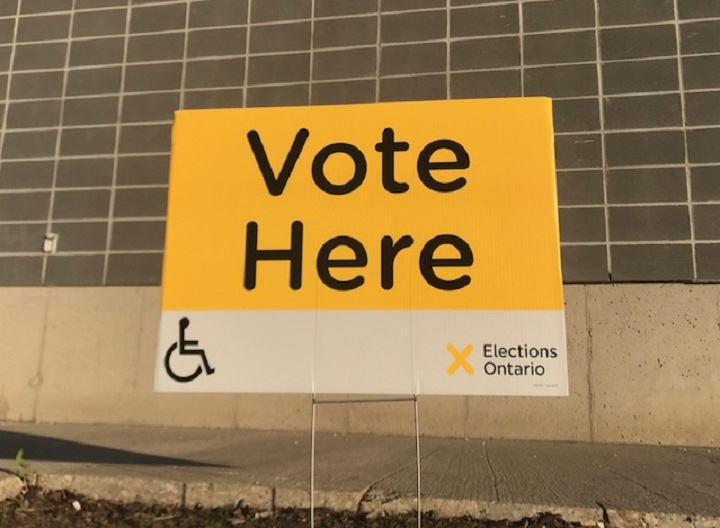TORONTO – Ontario’s chief electoral officer says the province should hold its next election on a weekend or school holiday to provide easier access to polling stations at schools and keep children safe.

That is one of 13 recommendations Greg Essensa makes in his post-vote report on Ontario’s 2018 election, which also include extending the writ period itself and giving Elections Ontario the power to levy fines.
The report says schools play a “foundational” role in running elections and while the arm’s-length agency pays for security, the safety of children would be enhanced if voting was moved to a day classes were not in session.
“They are among the most familiar and convenient locations for voting, partly because they can be found in virtually every residential neighbourhood in Ontario, and because they tend to meet accessibility standards,” Essensa said in the report. “Setting an election day that is not a school day would provide for easier access to schools for electors and would help keep children safe.”
Essensa said an additional benefit of having election day on the weekend or a school holiday would be to get youth to work and participate in the election itself.
Overall, the report said over 5.7 million valid ballots were cast in the 2018 vote. Out of 7,648 election day voting locations, only nine polls experienced problems and required extended hours.

Get daily National news
The agency estimates the final election costs came in $123 million – approximately $3 million under budget.
But Essensa said Elections Ontario experienced “significant logistical challenges” during the 2018 election because of the short length of the writ itself. He recommends the province extend the 29-day period to help elections run more efficiently.
The average election calendar ranges between 29 to 36 days across the country, the report said, noting that federal elections run at least 36 days.
In Ontario’s 2018 election, 17 new ridings were created meaning more materials for the vote had to be prepared and distributed by returning officers, the report said.
“From the need to deploy materials to the field to the increase number of nominated candidates, the already tight turnaround times have become increasingly difficult to manage in such a short amount of time,” he said.
Essensa also recommends giving the agency the ability to levy fines for minor violations of the province’s elections laws.
Currently, if Election’s Ontario discovers violations the only recourse it has is to report the activity to the province’s Attorney General for prosecution.
WATCH: Ontario Budget 2019: A look at what’s in the PCs first budget

“Broader powers for the Chief Electoral Officer, equivalent to those exercised by other regulators, including the authority to levy administrative fines, impose temporary suspensions, or issue public reprimands, would help promote compliance and public confidence in the electoral process,” he said.
Municipal Affairs Minister Steve Clark said last week he had not yet reviewed Essensa’s report but would be sitting down with him in the coming days to discuss it.
“I want to take the time to actually study the report,” he said. “Both the Attorney General and I have a shared responsibility in terms of the recommendations. We want to take our time.”
NDP Leader Andrea Horwath said moving election day to a school holiday makes sense from the perspective of keeping children safe.
“I certainly don’t have a problem with it if it’s about managing the amount of strangers in schools,” she said.







Comments